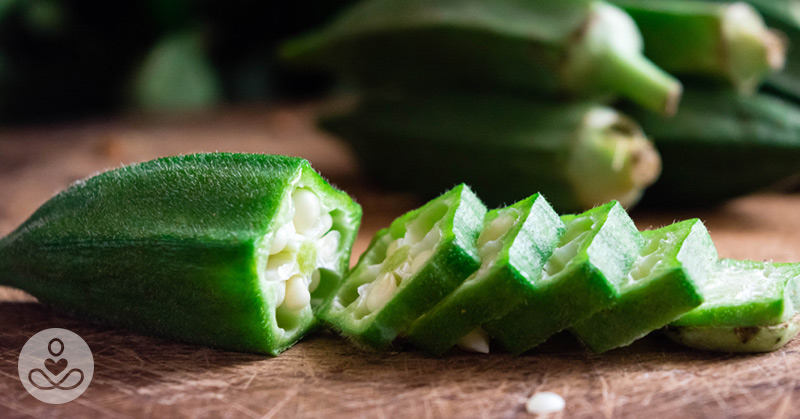Okra, also known as “lady’s fingers,” is a green flowering plant. Okra belongs to the same plant family as hibiscus and cotton. The term “okra” most commonly refers to the edible seedpods of the plant.
Okra has long been favored as a food for the health-conscious. It contains potassium, vitamin B, vitamin C, folic acid, and calcium. It’s low in calories and has a high dietary fiber content. Recently, a new benefit of including okra in your diet is being considered. Okra has been suggested to help manage blood sugar in cases of type 1, type 2, and gestational diabetes.
Incidences of diabetes diagnoses are only increasing, according to the Centers for Disease Control and Prevention. The verdict is out on whether okra can be used successfully as a direct diabetes treatment. However, the okra plant does have many proven health benefits. Read on to see if okra could be a viable part of your diabetes treatment plan.
Studies on Okra and Diabetes

Medical research on okra for diabetes management is still in the early stages. We do know that according to one study, okra water improved the blood sugar levels of pregnant rats that had gestational diabetes. Roasted okra seeds, which have long been used in Turkey to treat diabetes, have also been studied and proven to have a positive effect on lowering blood sugar.
Read More: How to Help Lower Cholesterol Without Medication
Okra Benefit #1: Dietary Fiber
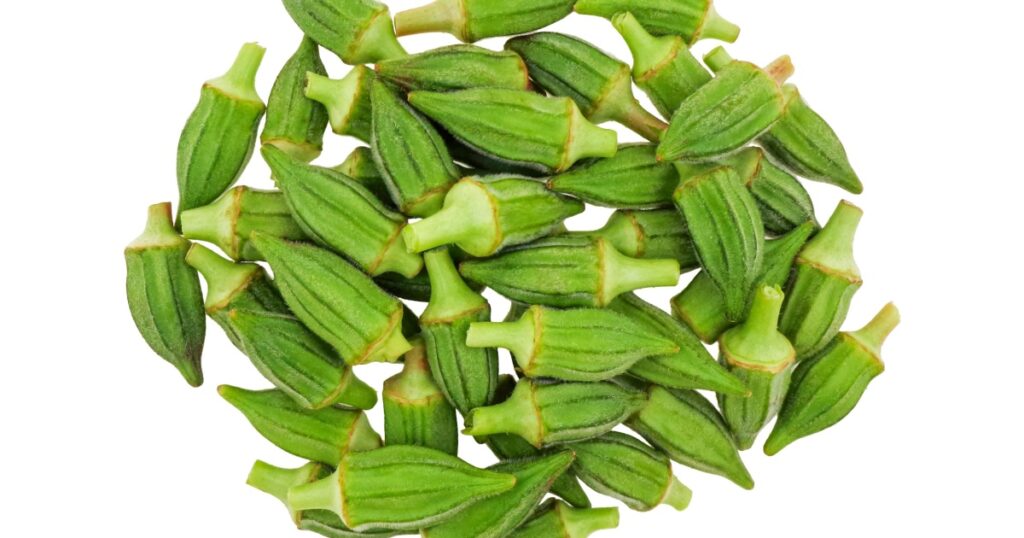
Okra is high in fiber. Eight medium-sized pods are estimated to contain 3 grams of fiber. This bulk fiber quality has several benefits. It helps digestion, cuts hunger cravings, and keeps those who eat it fuller for longer. Foods that are high in fiber content are an important part of dietary treatment options for diabetes. Increased dietary fiber intake has been shown to promote better glycemic control and improve insulin sensitivity.
Okra Benefit #2: Anti-Stress Effects
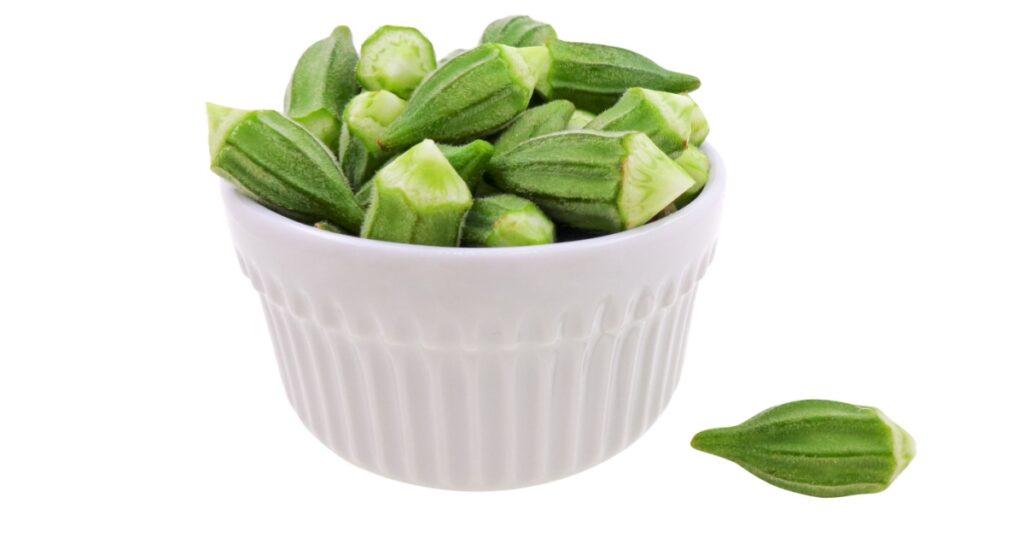
There is evidence that the seed extracts of okra have an antioxidant, anti-stress effect in the bloodstream of mice. Managing stress levels is an important part of managing diabetes. Long-term, high stress levels can cause blood sugar levels to spike. Mental health should be a part of any diabetes treatment plan, and using okra and its derivative seeds can be a part of that plan.
Okra Benefit #3: May Help Lower Cholesterol
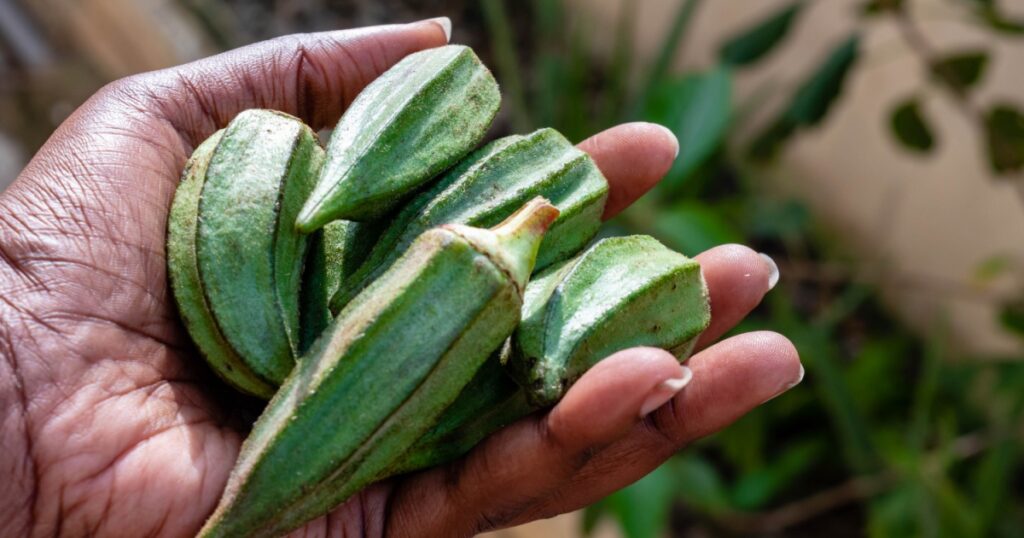
Okra has been found to lower cholesterol levels in diabetic lab mice. Foods with high fiber content and antioxidant qualities are recommended for those with diabetes because they lower cholesterol. The American Heart Association points out that people with diabetes are more likely to have unhealthy cholesterol levels. When high cholesterol levels are combined with diabetes, the outlook is not good. That’s why it’s so critical to make sure that your diet has healthy cholesterol levels.
Okra Benefit #4: Anti-Fatigue Benefit
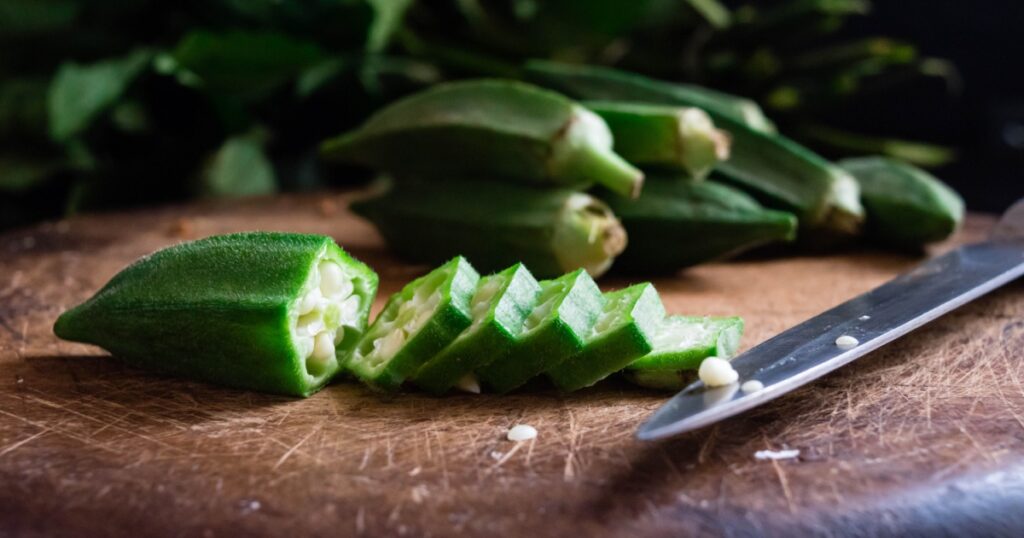
One study indicates that recovery times and “fatigue levels” can be improved by use of the okra plant. By including okra in your diet along with a healthy exercise routine, you may be able to work out for longer and recover more quickly from your exercise. Cardiovascular activity is an essential part of preventing and treating diabetes. This means that the okra plant may contribute to a more active lifestyle.
Read More: Is Peanut Butter Healthy?
Forms Of Okra
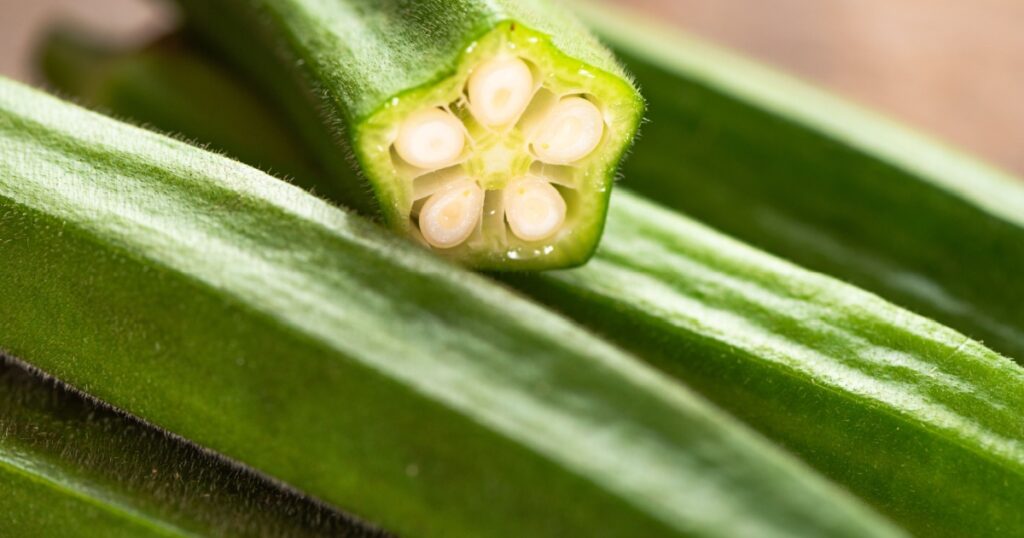
Okra has several health benefits and can be prepared in different forms to take advantage of its nutritional properties. Here are some ways you can use okra to enhance its health benefits:
Okra Water
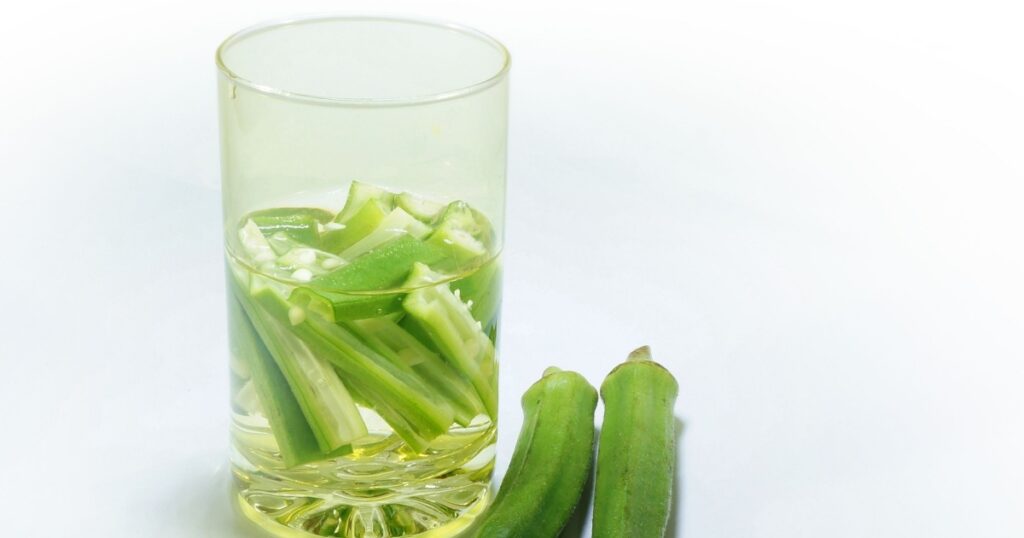
Drinking “okra water” is a popular new method of using okra. Some have even suggested that drinking it helps lessen diabetes symptoms. The drink is made by putting okra pods in water and soaking them overnight. Some of the valuable nutrients in the skin and seed pods will be absorbed into the water. If you’re not crazy about the taste of okra, drinking this okra water solution is a quick and simple way to derive the benefits of okra without eating it.
Some people prefer to cut the okra into thin slices instead of soaking the pods whole. If you are going to prepare okra water this way, be prepared for a drink that is slightly bitter.
Okra Peel and Powdered Seeds
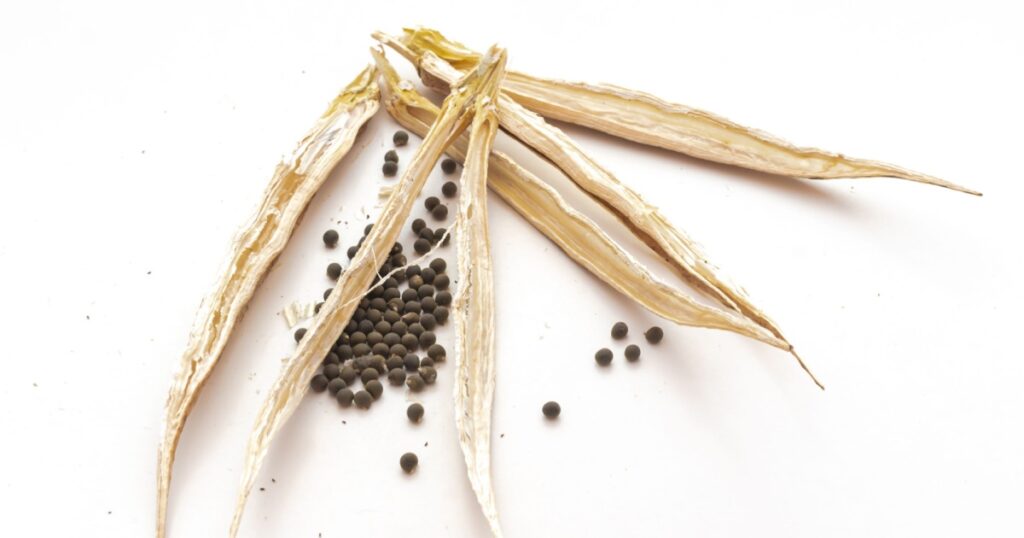
Okra peel is the most traditional way to use okra medicinally. In the preliminary studies done to investigate the benefits of using okra, using shredded okra peel was seen to be the most favorable way to ingest it. You can prepare okra peel yourself by using a handheld kitchen grater or a lemon zester. Though there is no known limit for how much okra peel someone should eat at one time, half of a teaspoon of okra peel should be more than enough for your body to benefit.
Powdered okra seeds are dried out before being ground down. Ingesting the powder from the seeds as a supplement has also been researched and seen to be beneficial. The process of making the powder is both time and labor-intensive. However, you can easily buy powdered okra seeds from health food stores and online suppliers.
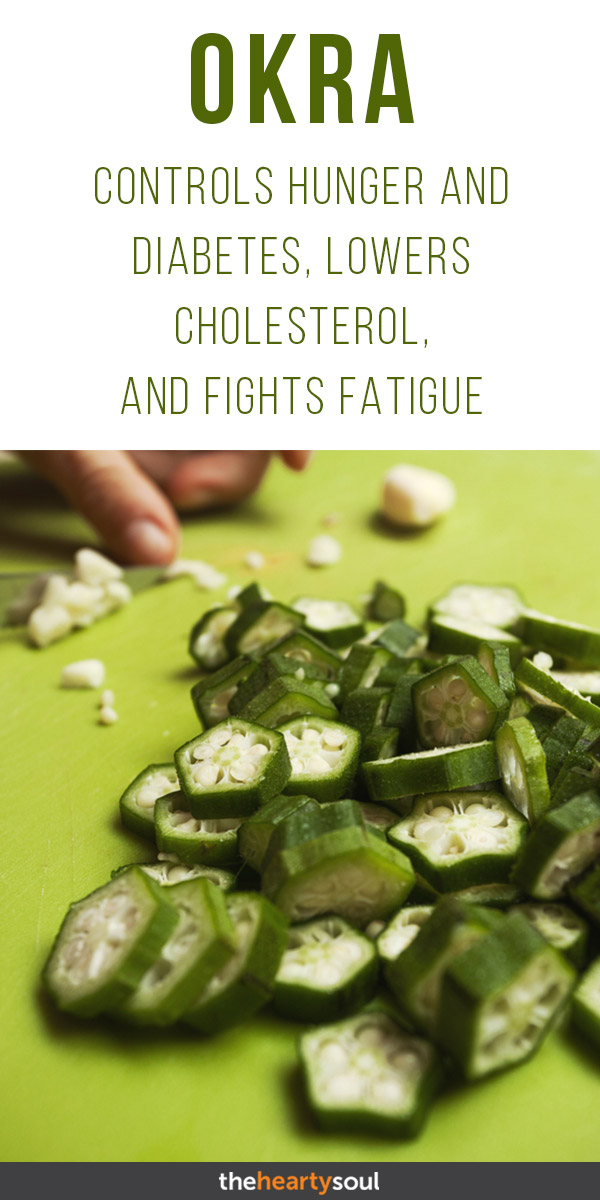
Read More: Eat More Eggs, It Might Help Protect You From Osteoporosis
